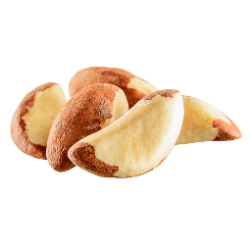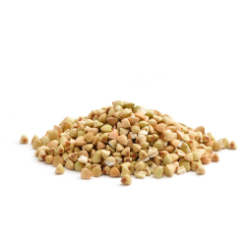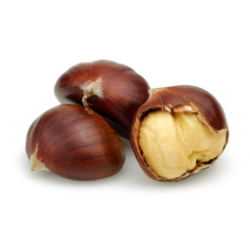Pumpkin seeds Nutrition facts
Pumpkin seeds

Fruit pumpkin is grown usually as a field-vegetable crop. However, in some parts of Central Europe (Styrian province in Austria, Slovenia, and Hungary), they are being cultivated exclusively for their kernels at a commercial scale as a major oilseed crop.
Normally, pumpkin fruit is allowed to mature completely in order to gather good-quality kernels. Each fruit may contain up to 250 g cream-white seeds located at its central hollow cavity entangled in mesh-like fibrils.
Pumpkin seeds are semi-flat, feature a typical ovoid shape with a conical tip. Inside, edible, olive-green kernels are sweet, buttery in texture, and nutty in flavor. Pepitas are enjoyed as a snack and added to desserts and savory dishes.
Research studies suggest that some chemical compounds in the pumpkin seeds possess DHEA (Di-hydro-epi-androstenedione) hormone-blocking actions at the receptor levels. Exposure to high DHEA levels may lead to gonadal tumors. Thus, these seeds may cut the risk of prostate and ovarian cancers in humans.
In addition, experimental studies suggest that certain phytochemical compounds in pumpkin seed oil may have a role in the prevention of diabetic nephropathy (diabetic kidney disease).
Similar Food
-
 Almonds 579 Cal
Almonds 579 Cal -
 Brazil nuts 659 Cal
Brazil nuts 659 Cal -
 Buckwheat 343 Cal
Buckwheat 343 Cal -
 Cashew nut 553 Cal
Cashew nut 553 Cal -
 Chestnuts 213 Cal
Chestnuts 213 Cal
Source of Calorie
-
Carbs10.71 g 7%
-
Protein30.23 g 20%
-
Fat49.05 g 73%
How long to burn off 559 Calories?
*Approximate base minutes for a 25-year-old, 65 kg adult at moderate intensity.
| Nutrition Principle | Nutrition Value | Percentage of RDA |
|---|---|---|
| Principle | ||
| Energy | 559 Kcal | 28% |
| Carbohydrates | 10.71 g | 8% |
| Protein | 30.23 g | 54% |
| Total Fat | 49.05 g | 164% |
| Cholesterol | 0 mg | 0% |
| Dietary Fiber | 6 g | 16% |
| Vitamins | ||
| Folates | 58 µg | 15% |
| Niacin | 4.987 mg | 31% |
| Pantothenic acid | 0.750 mg | 15% |
| Pyridoxine | 0.143 mg | 11% |
| Riboflavin | 0.153 mg | 12% |
| Thiamin | 0.273 mg | 23% |
| Vitamin A | 16 IU | 0.5% |
| Vitamin C | 1.9 µg | 3% |
| Vitamin E | 35.10 mg | 237% |
| Electrolytes | ||
| Sodium | 7 mg | 0.5% |
| Potassium | 809 mg | 17% |
| Minerals | ||
| Calcium | 46 mg | 4.5% |
| Copper | 1.343 mg | 149% |
| Iron | 8.82 mg | 110% |
| Magnesium | 592 mg | 148% |
| Manganese | 4.543 mg | 198% |
| Phosphorus | 1233 mg | 176% |
| Selenium | 9.4 µg | 17% |
| Zinc | 7.81 mg | 71% |
| Phyto-nutrients | ||
| Carotene-ß | 9 µg | -- |
| Crypto-xanthin-ß | 1 µg | -- |
| Lutein-zeaxanthin | 74 µg | -- |